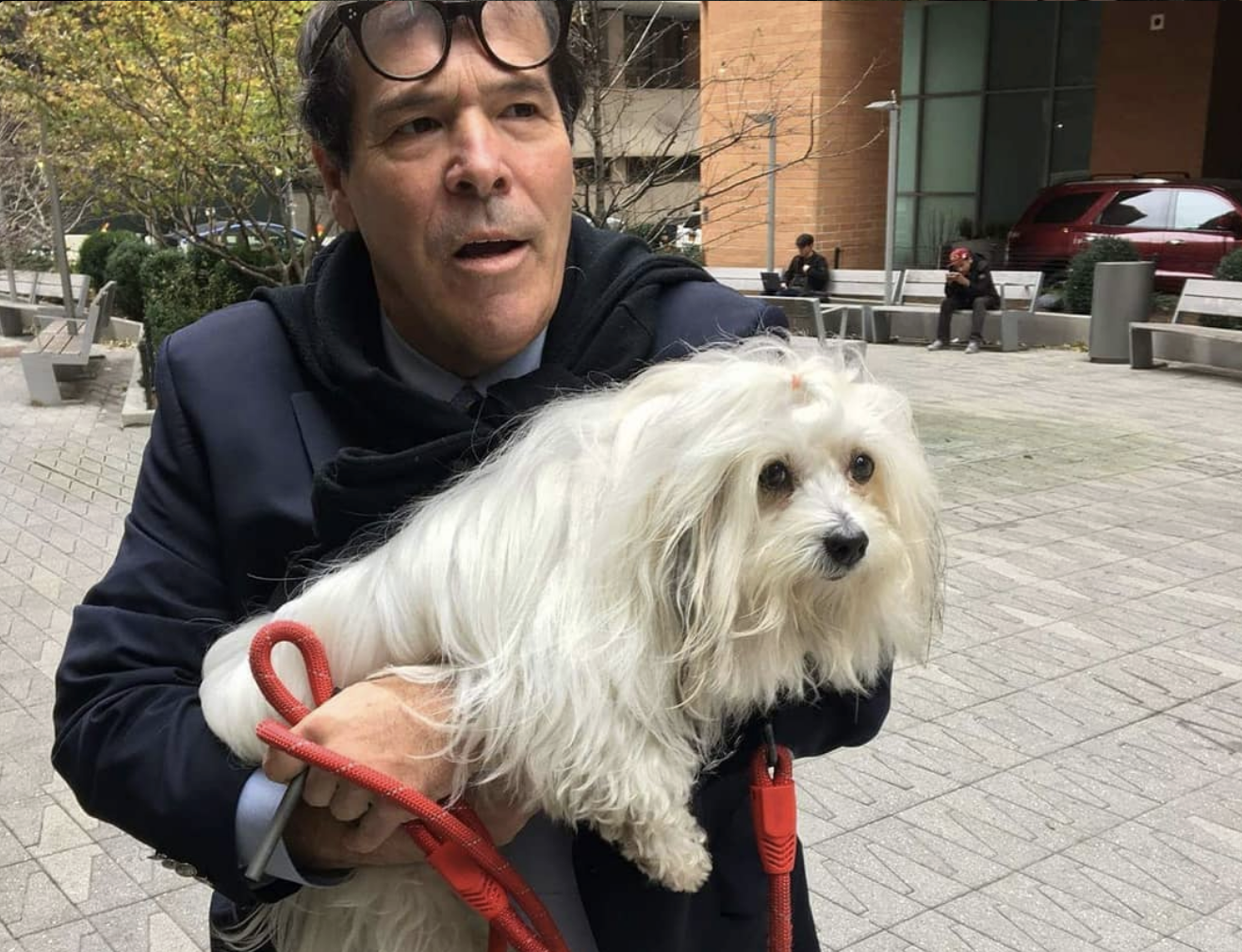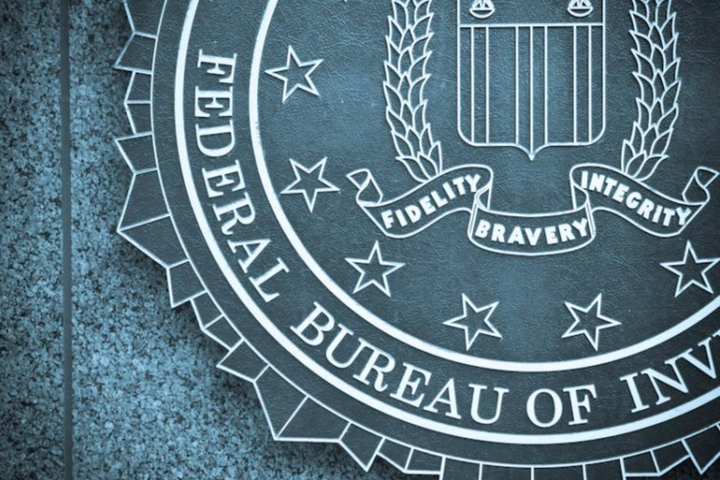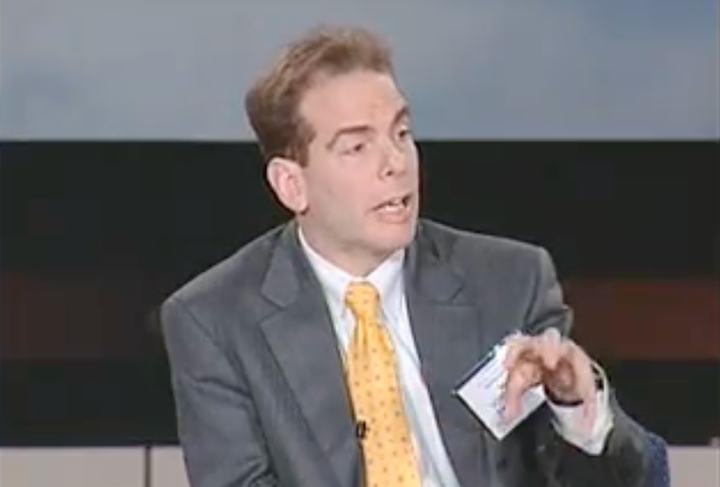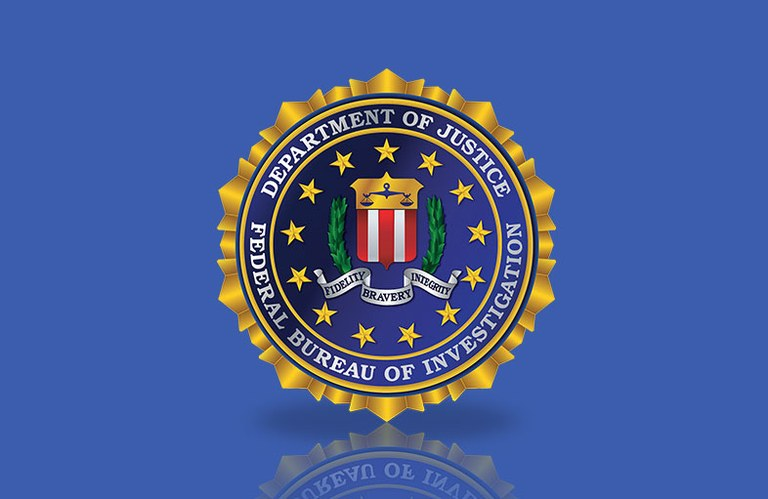FBI Spied On Journalists And Activists Who Organized 'Russiagate And WikiLeaks' Panel

The following article was originally published by Defending Rights and Dissent.
On the weekend of June 1, 2018, activists, academics, and writers gathered at John Jay College of Criminal Justice for the annual Left Forum conference. With roots in the Socialists Scholars Conference, Left Forum was regularly one of the largest gatherings of the U.S. left. The crowd of over a thousand people ranged from members of small, socialist sects hawking newspapers to academics presenting their latest scholarship. That year, Defending Rights & Dissent convened a panel on “Defending Dissent in the Age of Trump.” Also attending Left Forum that year, we can now report, were multiple Special Agents with the Federal Bureau of Investigation, including FBI Unit Chief Andrew Thomas Mitchell.
The agents were there to attend a panel entitled “Russiagate and WikiLeaks.” The panel was organized by Randy Credico, a comedian and activist who hosted the radio programs “Live on the Fly” and “Assange Countdown to Freedom.” Other panelists included Dennis Bernstein, host of KPFK’s Flashpoints; Max Blumenthal, founder of the Grayzone; Anya Parampil, at the time with RT; and Ray McGovern, a former CIA analyst turned peace activist. According to the copy of the Left Forum program retained by the FBI, Mark Crispin Miller, a professor of Media, Culture, and Communication at New York University, was supposed to speak as well. Defending Rights & Dissent reviewed a recording of the panel and Miller did not participate.
The revelation that FBI agents surveilled the panel of journalists and activists stem from documents the FBI turned over to Defending Rights & Dissent as part of ongoing litigation under the Freedom of Information Act. The two-page document is an “FD-302,” a report used by FBI agents to document investigatory activity. These reports are most typically used to memorialize interviews.
Since September 2024, Defending Rights & Dissent has been suing the FBI in order to compel them to turn over their files on WikiLeaks and its founder Julian Assange. Although the FD-302 is not labeled by investigation, all other files in the document set are part of the investigation titled “Roger J. Stone, Jr.; Foreign Agents Registration Act; Sensitive Investigative Matter.”
Although the caption of the investigation mentions the Foreign Agent Registration Act, the opening communication makes clear that Stone was being investigated “in connection with his activities related to the unauthorized access of computer data belonging to the Democratic National Committee (DNC) and the unauthorized transmittal and disclosure of the data to persons not entitled to see it.” The FBI was investigating Stone’s prior knowledge of publications internal DNC emails by WikiLeaks and whether he had been in contact with Guccifier 2.0, a hacking group the U.S. government claims was a front for Russian intelligence.
Other documents make clear Stone is being investigated under the Computer Fraud and Abuse Act, as well as conspiracy and aiding and abetting statutes. There is no mention of Stone being an unregistered foreign agent. Ultimately, Stone was not charged under any of these statutes but instead was charged with obstruction of justice, making false statements to the FBI, and witness tampering. He was convicted in November 2019 but pardoned by Donald Trump the following year. The investigation was opened as a counterintelligence matter on July 25, 2017. Files obtained by Defending Rights & Dissent show that Peter Strzok, then Deputy Assistant Director of the FBI’s Counterintelligence Division, approved the investigation.
Credico, who hosted the Left Forum panel, was accused of being Stone’s “back channel” to WikiLeaks. Credio was subpoenaed both by the House Intelligence Committee and by Special Counsel Robert Mueller. Under oath during Stone’s trial, Credico denied being a back channel. The comedian and radio host referenced the subpoena from the House Intelligence Committee during the panel discussion. He also said, “Stop giving [Roger Stone] any credibility. Just leave him out. Stop. He loves it. He’s eating it up. He had nothing to do with it at all. He insinuated himself into the story because he’s an egomaniac and Trump had dumped him and he wanted to get back in. So he went fishing. He came to me and I blew him off a bunch of times.”
Assuming this connection was what led FBI agents to attend the Left Forum panel, it is difficult to see any legitimate investigatory value to their actions. The two-page investigative report is mostly redacted, including what the agents made of the discussion. Unredacted text in the second paragraph reads, “The small classroom was packed with observers including people standing in the back, sitting on the floor, and peering in through the door. The panel lasted approximately 1 hour and 50 minutes. At the conclusion of the panel, [redacted].” The second page of the report appears to indicate that an unspecified individual was interviewed. It is unclear if the redacted text deals with the interview, a report of the panelists’ remarks, something else, or some combination thereof.
Defending Rights & Dissent reached out to panel organizer Randy Credico. He informed us that on that same day at Left Forum, he also performed a comedy set. After the set, “a young man and woman, who were dressed like Disney tourists, came up to me as I was walking alone and told me how much they loved the show.” As Credico was walking away, they revealed themselves to be FBI agents. After speaking with the agents for “a minute,” Credico put them on the phone with his attorney who made arrangements to speak with them at another date. It is likely this is the “interview” referenced in the FD-302.
If the FBI’s goal was to interview Credico, why the FBI felt the need to attend both a panel of journalists and activists and comedy show before approaching him is unclear. The FBI’s actions in this case are chilling from the standpoint of First Amendment rights. Left Forum was a political conference, held at a college campus. By attending the panel, the FBI learned no information of utility to a criminal investigation into violations of the Computer Fraud and Abuse Act. But they did observe political speech.
Although there are serious First Amendment implications to allowing the FBI to secretly attend a political panel, the Attorney General guidelines for FBI investigations considers information learned from observing an event open to the public to be “public information.” For decades, Defending Rights & Dissent and other civil libertarians warned the loose rules for attending public events opens the door to allowing the FBI to spy on First Amendment-protected activity. The files received in response to the Defending Rights & Dissent lawsuit are yet another documentation of their abusive nature.
Although the FBI spoke with Credico for about a minute before making arrangements with his lawyer, they sat through an entire panel during which speakers shared their dissenting views on U.S.-Russia relations and the Russiagate investigations. Panelists rejected the official explanation that the Democratic National Committee had been hacked by Russians or that there was collusion between the Trump campaign and Russia. Many of their remarks were openly critical of the FBI, with McGovern criticizing Strzok by name. McGovern also stated that his criticism of Russiagate led people to believe he was pro-Trump, but he wasn’t. “Trump is the worst president of the United States ever had,” the former CIA analyst said. “But if you don’t have enough reason to get rid of him on all these other things, including the fact that my grandchildren, nine of them will not have clean air to breathe or clean water to drink when they’re my age, if you can’t get rid of this guy without a phony set up here like Russiagate then you know there’s no hope for you.” Other panelists echoed concerns that by focusing on Russiagate as opposed to other issues like the economy, Democrats were ineffective at resisting Trump. Bernstein criticized the disparate coverage between Russigate and the U.S.-backed Saudi war in Yemen, noting the country was on the brink of famine.
Bernstein also criticized Rachel Maddow, noting that when it came to Russigate, “no minutiae escapes her.” “She loves Russiagate right. And she loves the collusion story. She loves that word collusion. Collusion and the Trump administration. Well, there was collusion,” the Flashpoints host said. “The collusion was between the emerging Trump administration and the Israelis to suppress a pro-Palestinian vote at the United Nations. That’s what we miss with this kind of horrific reporting.”
Ironically, Blumenthal warned that Russiagate would become a form of McCarthyism used against the left – a remark later confirmed by the presence of the FBI at the panel. At the end of the discussion, Credico asked each panelist to explain why WikiLeaks and Julian Assange are important.
On top of the panelists' remarks, audience members also made political comments during the question and answer session, unaware the FBI was quite literally watching and listening to them. All of this First Amendment-protected speech is unrelated to any legitimate law enforcement purpose. But it is precisely the type of speech the FBI has surveilled in the past. Having any government agent present and listening in on a political discussion has a chilling impact. That the FBI is a joint law enforcement and national security agency with a long history of spying on the First Amendment only compounds the chilling impact.
Defending Rights & Dissent’s lawsuit against the FBI for their files on WikiLeaks and Julian Assange is ongoing.




Comments ()